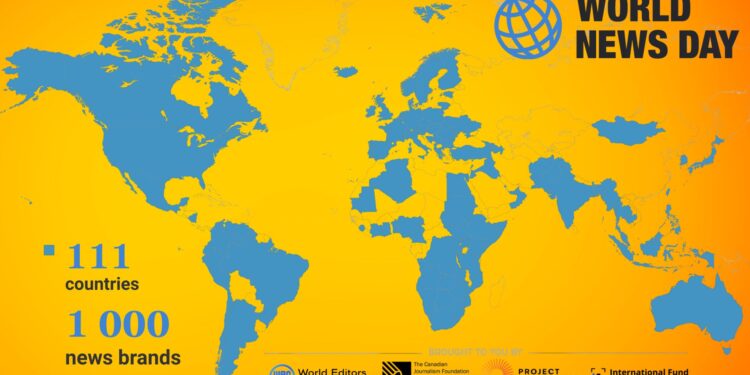At a time when journalism is under siege in many parts of the world – from rising authoritarianism to daily threats against reporters – the week-long campaign, which ran until Sunday, 28 September, demonstrated a united determination to defend truth, trust and the public’s right to know.
That journalism is under threat is undeniable. Events in the United States alone, once a bastion of democracy and press freedom, offer a chilling warning about how quickly press freedoms and status can be lost.
This is not an isolated story. Across the globe, disinformation, censorship, and political intimidation are rising at the very moment societies need fact-based reporting most.
Against this backdrop, the World News Day campaign gave news organisations an opportunity to remind audiences of the value of journalism.

The take-up of 11 high-quality op-ed pieces from veteran journalists, commentators and a group of the world’s top economists who make up the High Level Panel on Public Interest Media, showed a willingness of editors to open their pages to serious debate, offer solutions and take head-on the systemic threats facing journalism
This year, too, the campaign was further strengthened with the alliance with the International Day for Universal Access to Information, with which it deliberately shares a birthday.

United in purpose
World News Day reached audiences in most parts of the world – from Tonga to Afghanistan, Canada to Venezuela and Korea to Estonia – with messages carried across print, digital and video platforms.
Press Associations, institutions, associations and individuals publicly pledged their support for fact-based journalism.
South African editors launched a campaign to get their elusive President, Cyril Ramaphosa, to speak to the press.
The country’s newsrooms were particularly visible in #WND messaging, with hyperlocal and national outlets reinforcing the fight for reliable journalism – from press statements, ads, editorials and interviews to direct video messaging and podcasts on the history of journalism.

And in the Philippines, a collective comprising the Philippine Press Institute, SunStar Cebu, Daily Guardian and Rappler, brought AI into the mix by sharing a satirical video warning of a future without real journalism.
WATCH:
This story was first published by the World Editors Forum, a leading global community of editors, which is an integral part of the World Association of News Publishers (WAN-IFRA).
Lucinda Jordaan is WAN-IFRA’s correspondent in Africa.














